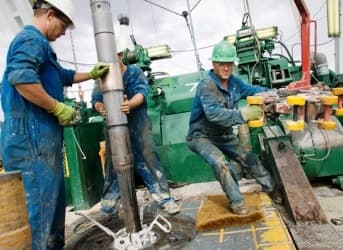Quarterly earnings for Royal Dutch Shell have declined sharply due to large expenditures, delays, and lower than expected production. The oil-giant reported that it expects fourth quarter earnings from 2013 to come in 70% lower than the same quarter for the previous year. Fourth quarter earnings are expected to decline to $2.2 billion, down from $7.3 billion in 2012. The decline prompted Shell to issue a profit warning, its first in 10 years, hitting its stock price. The company expects to release a full-earnings report on January 30.
Shell’s capital spending surpassed $44 billion in 2013, a 50% jump over the prior year. While investing in growth is necessary to turn a profit, many of Shell’s projects are floundering. After sinking over $5 billion in a multi-year effort to tap oil in the Arctic, Shell has nothing to show for it except for a series of mishaps and bad publicity. The company wants to return to the Arctic in 2014 after taking the year off last year to regroup, and submitted a scaled-back plan that they hoped would soothe the concerns of the Department of Interior. Yet with a January 22, 2014 decision from the Court of Appeals from the Ninth Circuit found that Interior violated the law when it sold offshore leases for exploration back in 2008. The ruling throws Shell’s plan into deep uncertainty, and is merely the latest blow to the company’s bungled Arctic campaign.
Shell has also bet big on Kazakhstan, sinking over $30 billion in a project, again with little to show for it thus far. The project is 8 years overdue.
Related article: UAE to Invest $1.2bn in Kurdish Oil
The latest news may be indicative of a new phase for major international oil companies. Shell is not alone in investing huge sums to develop complex oil fields in far flung places around the globe. As easy-to-get oil declines, Shell and other oil companies are forced to search for oil in places that present geological and engineering difficulties –and thus present significantly higher costs. According to Reuters, the rising cost of oil projects around the world is a major topic of discussion at the World Economic Forum in Davos.
Another example is Chevron’s Gorgon LNG project, which is expected to come in at $54 billion, or $20 billion more than originally expected. Italian oil company ENI expects to blow around $50 billion on the Kashagan oil field in Kazakhstan, five times what it expected.
Ben van Beurden, Shell’s new CEO, hopes to take a more conservative approach, paring back large investments in “elephant projects,” according to the Wall Street Journal. Other major oil companies are also promising their shareholders they will cut back on expenditures. Reducing costs may be a good strategy in the short-term, but the profitability of major oil companies depends on their ability to replace reserves and produce oil, not just now, but 10-20 years from now. If these companies decide not to invest in new oil fields, they will not have additional capacity coming online in the years ahead.
But it is telling that Shell and others do not find it wise to invest in new oil projects. If that is indeed the case, then the world could be looking at much more expensive oil in the not-so-distant future as existing fields naturally decline and supply tightens.
By. Nick Cunningham


















Their bad news is excellent news for the Canadian oil sands. The oil is there and will be for a long time. There is no need for expensive exploration around the world. In future the US will be begging Canada for oil delivery. No, not true. These bullies will just take it without asking.